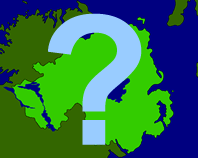The winners in Peace
Derry was the cradle of the 1960’s Civil Rights movement in Northern Ireland. The Battle of the Bogside and Bloody Sunday helped to bring an attention to the city for all the wrong reasons.
Derry itself fell away from the limelight in the later years of the troubles with much of the focus moving to Belfast, and the recent blip in the peace process with three murders in November and rioting in early July have focused on the Northern part of Belfast.
Meanwhile in Derry they have been quietly picking up the pieces, rebuilding the city, and community relations and dismantling some of the more obvious signs of the troubles.
Namely the massive police/army stations in the centre of the city, with their high walls, watchtowers and banks of cameras trained on the Catholic Bogside and the Loyalist Fountain areas.
And whilst this is all good, there has been one unexpected winner, because what do you do with a space that has previously housed an army barracks or a fortified police station...
...You turn them into car parks of course, to help pull in the money!
So, in peace, the real winners are the car park owners (though I don’t recall that ever being mentioned in either a great speech or a movie)
Labels: Derry, Londonderry, Northern Ireland, Peace


